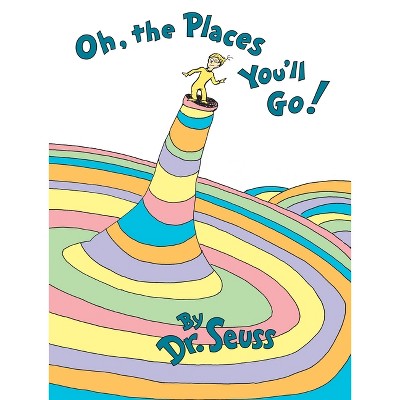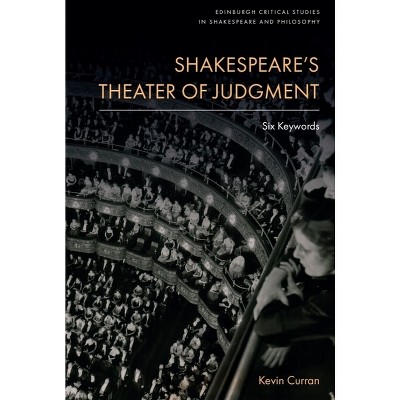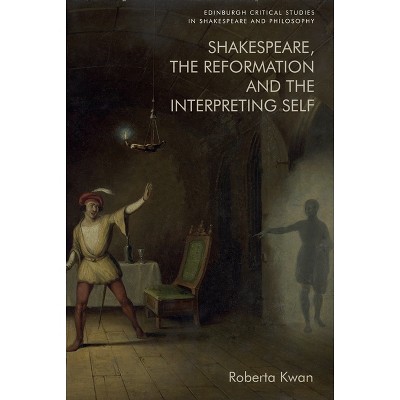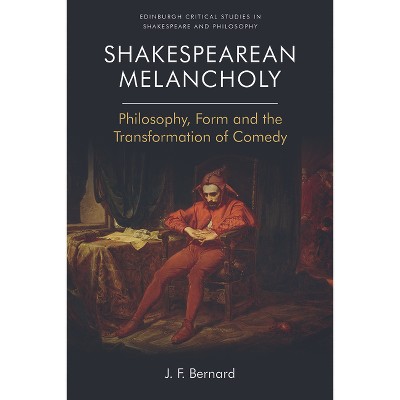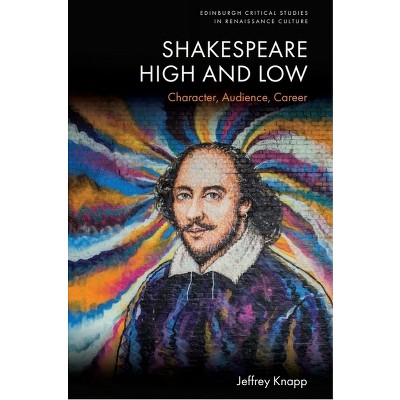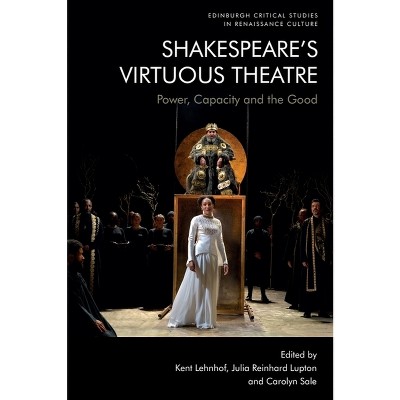Immateriality and Early Modern English Literature - (Edinburgh Critical Studies in Shakespeare and Philosophy) by James A Knapp (Paperback)

About this item
Highlights
- Examines literary engagement with immateriality since the 'material turn' in early modern studiesProvides six case studies of works by Shakespeare, Donne, and Herbert, offering new readings of important literary texts of the English Renaissance alongside detailed chapters outlining attitudes towards immateriality in works of natural philosophy, medicine, and theologyEmploys an innovative organization around three major areas in which problem of immaterial was particularly pitched: Ontology, Theology, and Psychology (or Being, Believing, and Thinking)Includes wide-ranging references to early modern literary, philosophical, and theological textsDemonstrates how innovations in natural philosophy influenced thought about the natural world and how it was portrayed in literatureEngages with current early modern scholarship in the areas of material culture, cognitive literary studies, and phenomenology Immateriality and Early Modern English Literature explores how early modern writers responded to rapidly shifting ideas about the interrelation of their natural and spiritual worlds.
- About the Author: James A. Knapp is Professor and Director of Graduate Programs in the English Department at Loyola University Chicago.
- 440 Pages
- Literary Criticism, European
- Series Name: Edinburgh Critical Studies in Shakespeare and Philosophy
Description
About the Book
Immateriality and Early Modern English Literature explores how early modern writers responded to rapidly shifting ideas about the interrelation of their natural and spiritual worlds.
Book Synopsis
Examines literary engagement with immateriality since the 'material turn' in early modern studies
Provides six case studies of works by Shakespeare, Donne, and Herbert, offering new readings of important literary texts of the English Renaissance alongside detailed chapters outlining attitudes towards immateriality in works of natural philosophy, medicine, and theologyEmploys an innovative organization around three major areas in which problem of immaterial was particularly pitched: Ontology, Theology, and Psychology (or Being, Believing, and Thinking)Includes wide-ranging references to early modern literary, philosophical, and theological textsDemonstrates how innovations in natural philosophy influenced thought about the natural world and how it was portrayed in literatureEngages with current early modern scholarship in the areas of material culture, cognitive literary studies, and phenomenology
From the Back Cover
Examines literary engagement with immateriality since the 'material turn' in early modern studies Immateriality and Early Modern English Literature explores how early modern writers responded to rapidly shifting ideas about the interrelation of their natural and spiritual worlds. It provides six case studies of works by Shakespeare, Donne and Herbert, offering new readings of important literary texts of the English Renaissance alongside detailed chapters outlining attitudes towards immateriality in works of natural philosophy, medicine and theology. Building on the importance of addressing material culture in order to understand early modern literature, Knapp demonstrates how the literary imagination was shaped by changing attitudes toward the immaterial realm. James A. Knapp is Professor and Director of Graduate Programs in the English Department at Loyola University Chicago.Review Quotes
Cutting an elegant line among literature, the philosophy of religion and historical phenomenology, Knapp has composed a highly intelligent account of what it meant for early moderns to think, to know and to believe anything, not only about the material world of things and institutions but about the immaterial, invisible, or hidden dimensions to lived experience. An utterly fresh, inspiring study.--Henry S. Turner, Rutgers University
For those with an interest in the early modern period's negotiations of alternative, sometimes contradictory, forms of knowledge, Immateriality and Early Modern English Literature is an indispensable resource. Knapp's monograph is to be admired for its careful philological excavations and close reading of a vast intellectual tradition that was so readily apparent to early modern thinkers.--Katherine Walker, University of Nevada "Reformation"
About the Author
James A. Knapp is Professor and Director of Graduate Programs in the English Department at Loyola University Chicago. His work focuses on the intersections of philosophy, literature, and visual culture in early modern Britain. He is the author of Illustrating the Past in Early Modern England (2003) and Image Ethics in Shakespeare and Spenser (2011), and his essays on early modern literature and culture have appeared in Shakespeare Quarterly, ELH, Criticism, and numerous essay collections.
Shipping details
Return details
Trending Fiction

